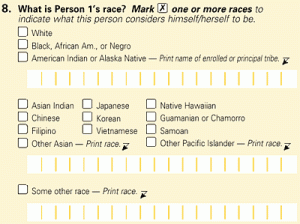Every now and then, I have to undertake a quick roundup on contemporary issues that befuddle, perplex, or amuse me. Considering that I have been in a nonproductive haze for the last week or so (it’s a long story, and you don’t want to hear it), this is a good time for me to tackle these mini controversies, these bite-sized morsels of interest that might not warrant a full, in-depth post but that should be addressed.
First, as befitting its status, we will start with the female breast. I think we’re all big fans, but this week, the news about breasts took a decidedly Hispanic turn.
According to the Centers for Disease Control and Prevention, Latina moms are more likely than any other group to breastfeed their babies. The study gave no reason for this, but I have to presume that the strong Hispanic emphasis on family (and therefore, upon babies and children) is one reason that Latina mothers are more willing to put up with sore nipples and occasional social awkwardness.
The researchers said that “breast-feeding benefits both mothers and their babies” but add that “the longer Hispanic immigrants are in the U.S., the more accepting they are of using baby formula. They also tend to adopt worse eating habits and lifestyles for themselves.” One researcher said, “Their health actually begins to decline.”
So for all those who say that Hispanic immigrants don’t assimilate, here is further proof that you’re wrong. Given enough time, Latinos from other countries quickly grow obese and sickly, just like the rest of us. God bless America!
Speaking of the American Dream, the favorite immigrant of Republicans, Arnold Schwarzenegger, issued yet another idiotic faux pas this week. My state’s governor said that Hispanics are naturally temperamental and “are all very hot. They have the, you know, part of the black blood in them and part of the Latino blood in them that together makes it.”
It’s an interesting theory of eugenics, but then again, it does come from a man who knows a thing or two about mixing races – or mingling circuitry with human flesh, same thing.
I’m not a huge fan of Schwarzenegger’s politics. For that matter, I’m not too crazy about a lot of his movies. So it’s not bias toward the governor when I say that his comments sound more like a moronic attempt to be funny than an outright slur. The target of his joke, a Latina state official, said as much. Therefore, I think we can let the guy off the hook, especially because he quickly apologized. But let’s watch it, Mr. Governator.
This brings me to my final item. It seems that I have fresh competition in the Latino blogosphere. This week, Venezuelan president Hugo Chavez announced that he’s starting his own blog. Chavez said, “I am going to dig my own trench on the Internet,” with the intention of spreading his revolution through cyberspace. I, for one, look forward to reading the insights of a touchy head of state who is, quite frankly, a bit of a lunatic. I’m sure it will not be boring.
In addition to these brief updates, let me thank, as always, everyone who has commented on my recent posts. Yes, I’m talking to you, Niall, Clairela, Pete, and Mary Lynn. And here’s a special shout out to Ankhesen, who posted a treasure trove of Hispanic humor in the comments section for my post “A Priest, a Rabbi…”















